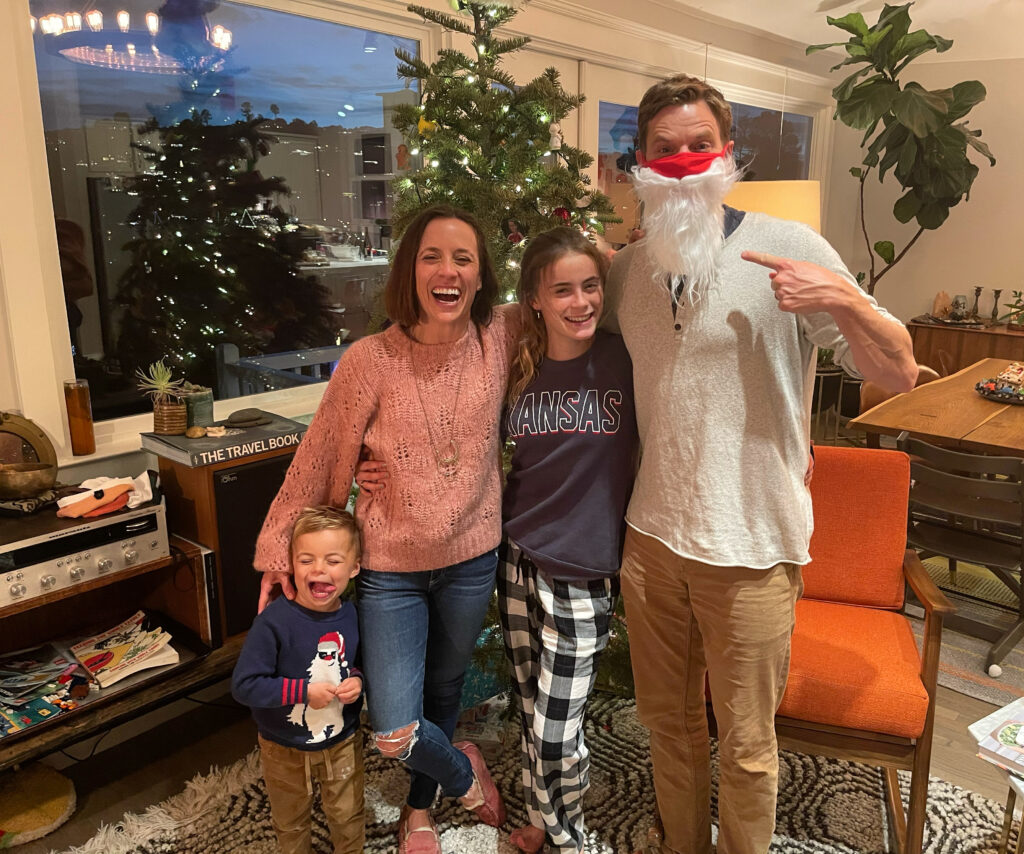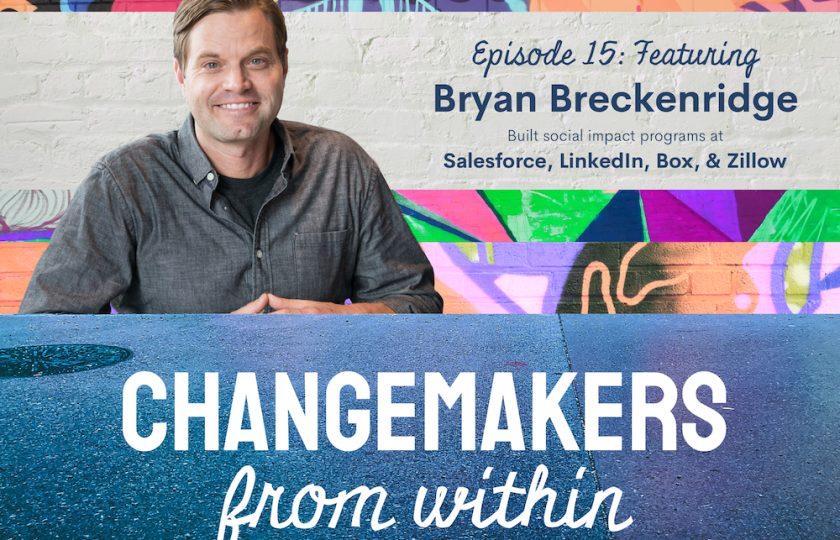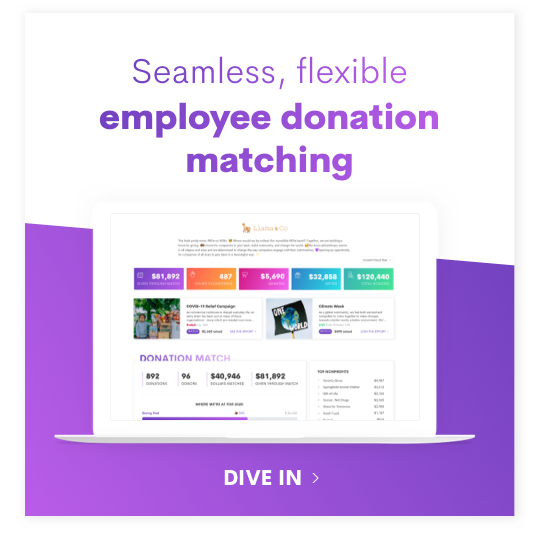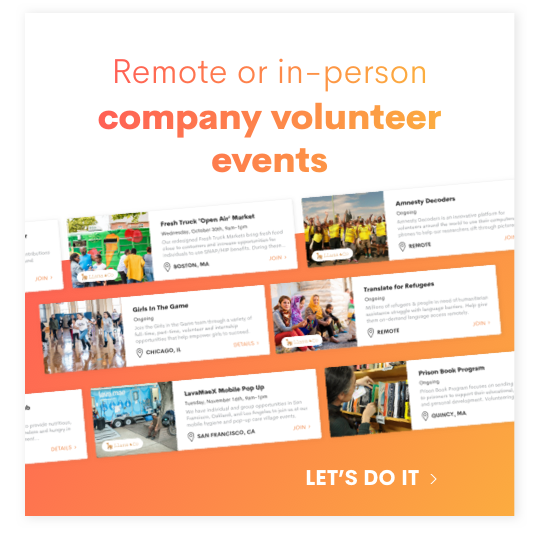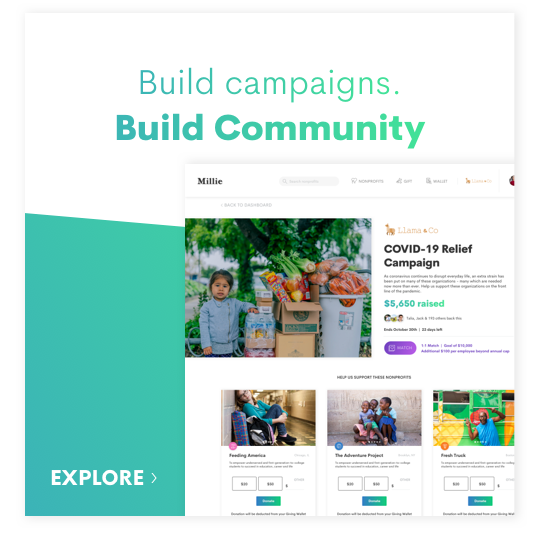In this week’s episode of Changemakers From Within, Rachel sat down with Bryan Breckenridge, a trailblazer who has spent the past two decades building social impact programs at various tech companies — including Salesforce, LinkedIn, Box, and Zillow.
Bryan’s social impact journey began back in 2001, when Salesforce hired him to be an account executive. After joining the steering committee for the Salesforce Foundation on his first day on the job, Bryan eventually worked his way up to becoming the company’s director of nonprofits and education. In that role, Bryan helped make Salesforce’s products more accessible to nonprofits by offering them discounts and software that was tailored to their needs.
“I was just a loud employee that really wanted this to be prioritized at Salesforce — I didn’t have some degree in CSR or CSI — and then just knew that this had to be my work day to day as things evolved.”
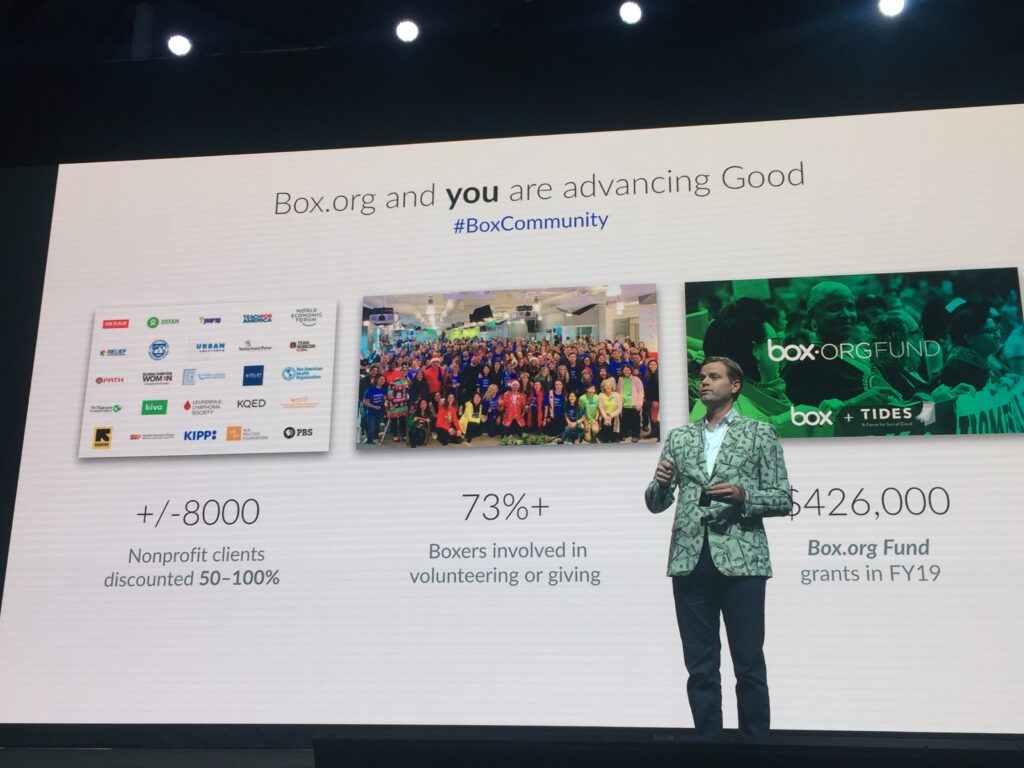
Bryan has two main suggestions for people looking to build “product for good” programs at their companies:
- Make sure your program aligns with what your company does best.
- Power the people who are already working in the nonprofit sector to solve the issues you choose to focus on.
“Regardless of what your competency is as a company, figure out how you can scale the capacity of the nonprofit sector with that capability — that could be your thought leadership, your employees’ time, money, technology, whatever that is. Keep in mind that it’s not always the work you’re going to do directly that counts most.”
In 2011, Bryan began working at LinkedIn, where he founded an initiative that provides support and discounted services to nonprofits. Bryan went on to become the founding executive director at Box.org, a social impact initiative out of the cloud storage company Box.
Bryan and his team decided they were going to ramp up Box.org’s employee engagement efforts in 2017, and within two years, they saw giving and participation rates jump from 5 percent to 74 percent.
Bryan’s team used multiple mechanisms to keep employees engaged: They held Social Impact 101 classes, organized global volunteer days, and gave out awards to employees who were making outsize impact. But all in all, Bryan says the main reason for Box’s high participation rates was that social impact was a part of the company’s core.
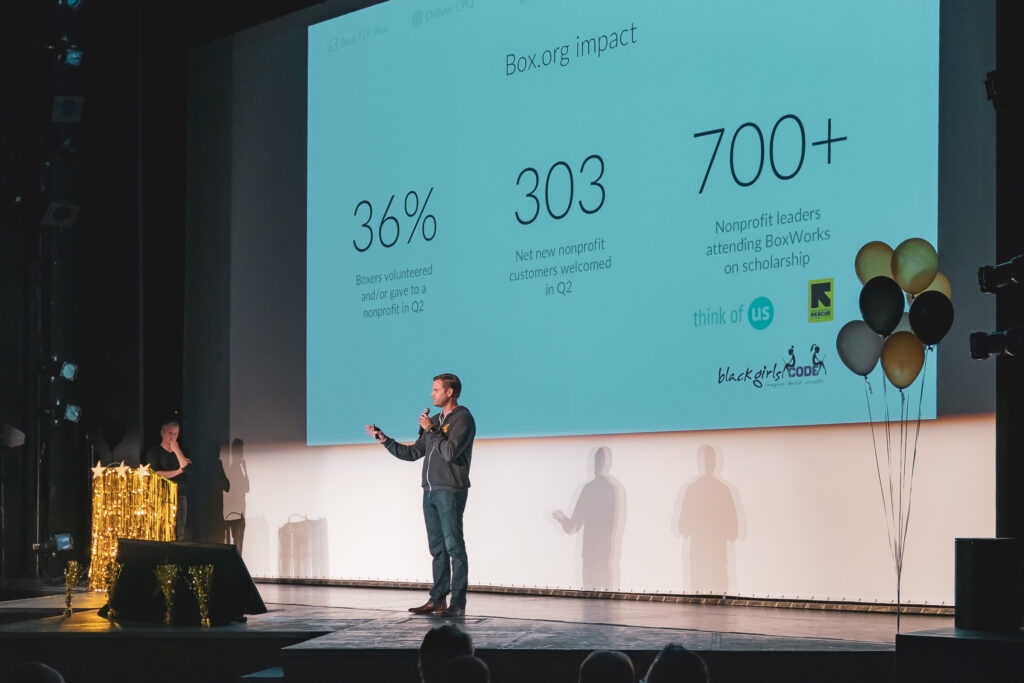
To Bryan, that’s the difference between corporate social responsibility and corporate social impact: CSR is just about being a good organization, while CSI is about weaving social and environmental considerations into a company’s DNA.
“We’ve always done good things and then gotten the, quote, ‘good PR,’ but those days are gone. That can’t be the only thing you do if you really want to have an impact and make the company better and bigger, and serve all the stakeholders.”
This week’s episode includes the first-ever Changemakers From Within speed round. Tune in to hear about Bryan’s favorite social impact programs, a nonprofit that he wants more people to know about, and the top issue he thinks more companies should be tackling.
